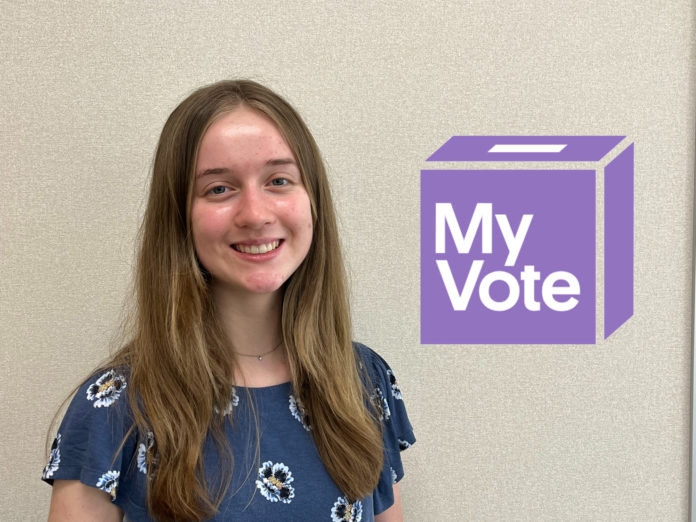Elise Chang is a sophomore who currently serves as the North Carolina director of MyVote Project.
A common, dangerous misconception is that political involvement does not start until a person turns 18. While sporting the ubiquitous “I Voted” sticker is an essential part of civic engagement, participation can—and should—begin much earlier. The more we as a society help teenagers become acquainted with politics, the more likely it is that young voters will head to the polls in the future.
Voter turnout among people aged 18-29 jumped significantly between presidential election years 2016 and 2020, from 42-44% to 52-55%, according to the Tufts Center for Information & Research on Civic Learning and Engagement. However, it is vital to consider not only general election voter turnout, but also midterm election numbers. According to University of Virginia public policy professor John Holbein, in 2018, “only about 31 percent of young people voted.” Additionally, Texas kicked off the 2022 midterm primary season with “82.5% of the state’s registered voters [not showing up] for either the Democratic or Republican primary,” according to The Texas Tribune.
While it is encouraging to observe a leap in youth general election turnout, the midterm numbers also suggest a general disenchantment among youth in state and local elections not defined by the presidential race. Youth are not to be blamed for their disinterest in smaller but nonetheless equally important down-ballot elections; chances for young people—especially those under 18—to engage in their civic communities are sparse.
MyVote Project was founded in 2018 by current Yale student Sari Kaufman, political strategist Gita Stulberg and Duke economics professor David McAdams. MyVote Project aims to inform voters about their candidates through nonpartisan research and events, with a team of 150 youth volunteers. Sari survived the 2018 Parkland shooting and “realized that if people did not know who they were voting into office, it would be nearly impossible to create change and stop preventable tragedies.”
The beauty of MyVote is how it connects volunteers nationwide: high school and college students from Houston, New York City, Miami, Chapel Hill, Los Angeles, Washington D.C., and Lancaster, Pennsylvania are on a call together at any given time. It also gives teenagers who cannot vote the ability to ensure that the people who can are well-informed and educated about their candidates. Young people are given the tasks of researching candidates, fundraising, field organizing, forming coalitions and undertaking press and social media responsibilities, among others. In other words, they are offered the opportunity to help strengthen their community’s civic awareness.
Since joining MyVote Project in October 2020 and being named North Carolina director in March, I am reminded of how crucial it is to teach teenagers to be aware of and interact with their civic communities. The power of community organizing should never be underestimated, and I want my peers to know that they can play an important role in it. An informed electorate is essential to a healthy democracy and will be tested this November in the US midterm elections.
Join MyVote Project using the link below:












